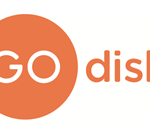Despite successful crowdfunding campaign, tech startup KANOA shuts down after bad product review without sending out products.
KANOA, would-be producer of some sort of wireless earbuds, shut down. They announced their demise with an open letter to their backers.
They began with their founder’s initial capital spent on market research and design study by an engineering firm.
It appears that their crowdfunding may have been a pre-order campaign, but information is scarce at this point.

However, KANOA has said that they hired internally and engaged a contract manufacturer. They began to ship a few units, but they were absolutely savaged by one YouTube review, which seems to have been the knockout blow. Ironically, according to the reviewer, KANOA reached out to him as an influential personality to review the earbuds and garner publicity. iTwe4ks has about 486,000 subscribers, and some of his videos have exceeded 1,000,000 views. He did like the free t-shirt, if that is any consolation.
KANOA claimed in their farewell letter that they are in negotiations with investors for funding or an acquisition, but they do not have enough money to continue operations. Backers or pre-ordering customers are out of luck. They will not be fulfilling more orders.
Some farewell letters give a detailed post-mortem explaining what went wrong. They leave a memorial to what went wrong.
It is difficult to see what happened to KANOA, or at least what KANOA thinks went wrong, other than they ran out of money. Too many employees? Ineffective design and manufacturing? Lack of market?
No. They were too honest and transparent:
Unlike on typical crowdfunding platforms we allowed backers to ask for refunds at any time. This policy kept us honest, but also added vulnerability once we had made major financial commitments. Setbacks and some bad publicity, like reviews of non-shippable beta units, stirred our audience. Most significantly and to our unpleasant surprise, our investors recently backed out of our funding round. We do not blame them, but this was a pivotal setback since capital was essential for ramping up production.
Perhaps the actual story will be uncovered in the class action lawsuit. However, a lawsuit is unlikely if there is nothing to go after.



